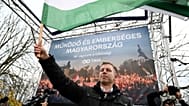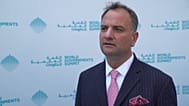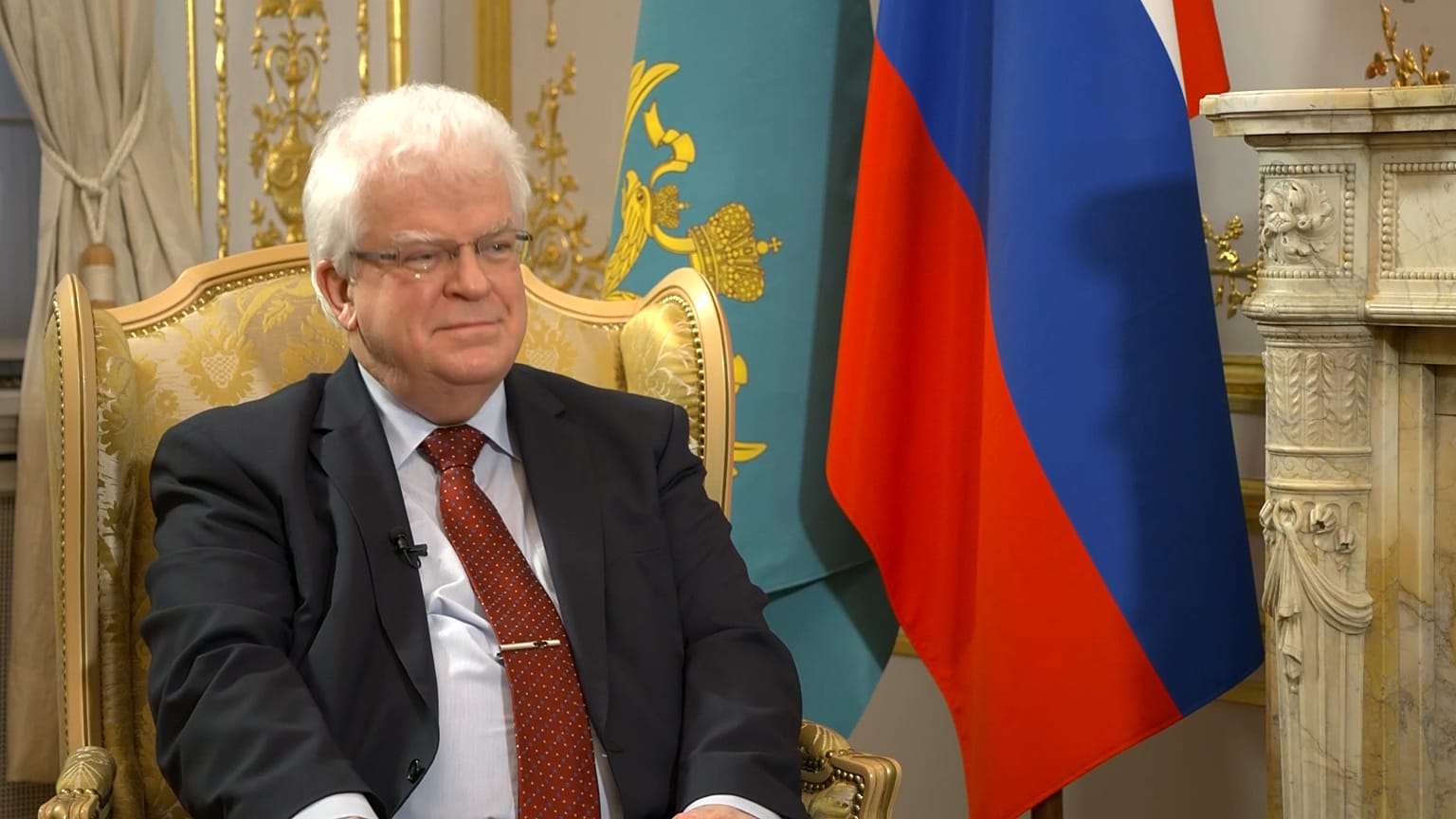Claims that Moscow is about to invade Ukraine are a "bluff", Vladimir Chizhov, Russia's ambassador to the EU, told Euronews.
There is mounting tension over a possible Russian invasion of Ukraine.
 ADVERTISEMENT
ADVERTISEMENT
 ADVERTISEMENT
ADVERTISEMENT
Euronews' Efi Koutsokosta met with the Kremlin's top diplomat to the EU, Vladimir Chizhov, to quiz him on Moscow's plans in the region.
**Efi Koutsokosta, Euronews: "**Is Russia ready to invade Ukraine or is it all a bluff?"
Vladimir Chizhov, Russia's ambassador to the EU: "It's not an issue of readiness. Russia has no plans to invade either Ukraine or any other country. It's a bluff created not in Russia, but in those countries that are now spreading this hysterical message, I would say, across Europe and the world."
**Euronews: **"Hysterical message, you said. But it's a fact that Russia was the first to deploy offensive weapons and systems within striking distance from Ukraine. If this is not a direct challenge of the country's sovereignty, what is?"
Chizhov: "You will be surprised how many offensive weapons NATO has deployed along Russian borders. Not to say of military bases and so on. And I would even add to that, as a point of statistics that the number of overflights along Russian borders in the Black Sea region, for example, last year increased by 60 per cent."
Euronews: "You see a severe threat to your security by NATO doing this, but you did that. You amassed thousands of troops near the Ukrainian border. What is at stake for Russia now?"
**Chizhov: "**The stake for Russia is Russian national security. That is the reason why Russia has put forward an initiative in the form of draft agreements with the United States and with NATO countries that would actually put on paper in a legally binding form a number of commitments that had been agreed throughout the last 30 years since the collapse of the Soviet Union, when, in those days NATO promised not to expand eastwards. In the words of the then US secretary of state, 'not an inch' eastwards. And since then, we faced as many as five waves of NATO's enlargement in the eastern direction. So when today some people get excited that Russia is getting closer to NATO, it's not Russia getting closer to NATO, is NATO getting closer to Russia."
Euronews: "But Russia, as you said, submitted some of the demands, including, as you said, an end to NATO's expansion towards the East and also to effectively end Ukraine's ambitions to join the alliance. But isn't this an attempt to recreate the Soviet spheres of influence? Is this what you're are trying to do?"
**Chizhov: **"No, actually, what we hear from the West, be it the United States or NATO or even the European Union in the last weeks and months, is a reiteration of the principle that all independent and sovereign countries have the right for their own security arrangements and the doors of NATO are open for everyone. But I think they always omit the second part of the formula, which was actually agreed back in 1999 in Istanbul, and I can quote from that from the Charter for European Security: 'Each participating state has an equal right to security. We reaffirm the right of each and every state to be free to choose and change its security arrangements, including treaties of the alliance as they evolve'. NATO has not evolved, but moreover, 'each state also has the right to neutrality, each participating state will respect the rights of all others in those regards, and they will not strengthen their security at the expense of the security of other states'."
**Euronews: "**What you are saying is that Ukraine's ambitions to join the alliance or other countries, post-Soviet democracies, is a threat to your security, to Russia's security?"
**Chizhov: "**Any ambitions, any plans to join any security alliance should be commensurate with taking into regard the interests of national security of other countries, in this case, countries that are next door. An open-door policy is formulated as if NATO existed in a vacuum, as if there was nobody else around NATO."
Euronews: "So all options are on the table for you, including a military escalation?"
**Chizhov: "**Not a nuclear war, no."
**Euronews: "**But, you know, any military escalation, any Ukrainian invasion..."
**Chizhov: "**We believe in diplomacy and I can only hope that our interlocutors, here in Europe and beyond the Atlantic, stick to the same principle that any difference can and should be resolved by diplomatic means."
Euronews: "But any military escalation also risks the viability of, for example, Nord Stream 2 pipeline. Do you consider this as a real risk and can Russia afford to let this happen?"
**Chizhov: "**You know, it's not only Nord Stream 2, but the overall situation with European security. The European security system, as we all envisaged back in 1975 at Helsinki."
**Euronews: "**But you didn't tell me about Nord Stream 2 pipeline. Are you worried about a blow to this project?"
**Chizhov: "**I think that European consumers should be the first to be worried because they will have to live without, you know, relatively cheap Russian gas and abundance of it and they will have to find other means of heating their homes. Oh, well, winter is not over yet. And, of course, to provide electricity for their households."
Euronews: "But there will also be a huge cost -- billions of euros -- for Russia."
**Chizhov: "**Well, Russia will find somewhere to sell its gas."














